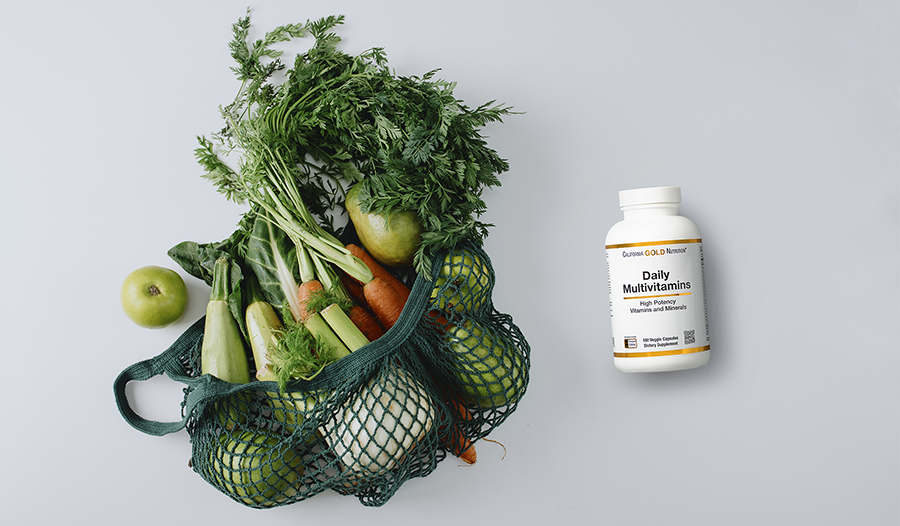Ce micronutrienți contează pentru sănătate? Și cum să obțineți mai multe dintre ele

Macronutrienții - proteine , carbohidrați și grăsimi - primesc o mulțime de zgomot în presă, în special în comunitatea de sănătate și fitness. Dar sunt de fapt micronutrienți, cum ar fi vitaminele B, vitamina Dși vitaminele A, Cși E care ne dau energie, ne mențin pielea strălucitoare și ne alimentează metabolismul. În plus, mineralele ne ajută să ne menținem calmi, ne pot îmbunătăți sănătatea mintală și ne ajută să ne recuperăm după antrenamente grele.
Deci, care sunt micronutrienții de top care contează pentru sănătate și cum ne asigurăm că primim suficient din ei în fiecare zi? Răspundem la aceste întrebări și multe altele în articolul nostru de mai jos.
Ce sunt micronutrienții?
Micronutrienții se referă la vitamine, minerale, polifenoli și alte molecule mici care rulează fiecare dintre cele peste 500 de reacții enzimatice care ne mențin în viață în fiecare zi. Corpurile noastre, de obicei, nu pot produce aceste vitamine și minerale pe cont propriu, așa că este important să învățăm nu numai ce fac, ci și cum le putem încorpora în dieta noastră. Ca medic naturopat, acesta este unul dintre domeniile mele de expertiză: să-mi ajut clienții să alimenteze, să vindece și să optimizeze procesele naturale ale corpului lor prin dietă.
Vitamine: De ce avem nevoie?
Probabil ați auzit de vitamina C, care apare în mod natural în multe fructe și legume, sau vitamina D, pe care o obținem din petrecerea timpului la soare. Dar ce vitamine ar trebui să luați în considerare monitorizarea în propria dietă? Iată câteva dintre vitaminele pe care le discut cel mai des cu clienții mei.
Vitamina A
Vitamina A este esențială pentru sănătatea vederii, funcționarea unui sistem imunitar puternic și sănătatea reproducerii. Vitamina A susține, de asemenea, funcția inimii, plămânilor și rinichilor, făcând-o esențială pentru sănătatea și vitalitatea zilnică.
Vitamina A este ușor de obținut prin dieta dvs. dacă mâncați în mod regulat verdeață cu frunze, legume precum broccoli sau dovlecei sau fructe precum mango și caise. Dacă nu sunteți un iubitor de legume, puteți căuta, de asemenea, o multivitamină zilnică care include vitamina A (majoritatea multivitaminelor o fac).
Vitamine B
Există mai multe vitamine „B” diferiteși toate ne susțin sănătatea în moduri simbiotice.
- Vitamina B1 (numită și tiamină) ajută organismul nostru să transforme alimentele în energie, stimulând funcția celulelor. B1 se găsește de obicei în cereale integrale, cum ar fi pâinea fortificată sau chiar cerealele pentru micul dejun, carnea și leguminoasele. Consumul de alcool epuizează vitamina B1 și poate duce la deficiență de tiamină, așa că, dacă sunteți un băutor mare, este important să încorporați B1 în rutina suplimentelor în fiecare zi.
- Vitamina B12 menține celulele sanguine sănătoase și sănătoase și chiar susține producția de ADN. Alimentele precum peștele, carnea și păsările de curte au adesea B12 natural, dar mulți producători de alimente adaugă și B12 la produsele lor (așa că verificați etichetele!). O sursă vegană de B12 este drojdia nutrițională, pe care mulți dintre clienții mei adoră să o adauge la tot felul de gustări și salate, deoarece este plină de vitamine și are gust de brânză!
- Vitamina B2 este, de asemenea, numită riboflavină. La fel ca B12, ajută la susținerea funcției celulelor sanguine și, la fel ca B1, ajută, de asemenea, la transformarea alimentelor în energie - deci este destul de important! Din fericire, B2 se găsește în alimente ușor de gătit, cum ar fi spanacul, broccoli, carnea slabă (cum ar fi puiul sau curcanul) și ouăle. Din nou, mulți producători de alimente adaugă B2 la produse precum cerealele și pâinea, așa că asigurați-vă că verificați etichetele!
- Vitamina B3 este foarte asemănătoare cu B2, dar B3 se numește niacină . Niacina susține funcția celulelor sanguine și respirația celulară (transformarea alimentelor în energie). Cu toate acestea, niacina se găsește mai des în carnea de animale, cum ar fi păsările de curte, peștele, carnea de vită, nucile și leguminoasele.
- Vitamina B6 este utilizată în peste 100 de reacții care sunt implicate în funcționarea metabolismului nostru! Este deosebit de important pentru femeile însărcinate, deoarece B6 este esențial pentru dezvoltarea creierului sugarilor. B6 se găsește adesea la păsări de curte și pește, iar amidonul precum cartofii este deosebit de bogat în B6. Fructele non-citrice sunt, de asemenea, bogate în B6. Împreună, fructele și legumele amidonice sunt sursa principală de B6 pentru majoritatea americanilor.
- Vitamina B7 , sau biotină , ajută la transformarea macronutrienților în energie. Obținerea B7 prin dieta ta poate fi mai complicată decât verii biotinei B3 și B2. Pentru a vă asigura că obțineți suficient B7, asigurați-vă că includeți legume precum cartofi dulci, spanac sau broccoli în dieta zilnică. De asemenea, puteți obține B7 din semințe, nuci și chiar organe animale, cum ar fi ficatul. Biotina este inclusă în multe suplimente pentru păr, piele și unghii , deoarece ajută aceste structuri să crească și poate chiar menține pielea să arate fermă și plină.
- Vitamina B9 , numită și folat , susține funcția celulară în două moduri extrem de importante. În primul rând, ajută celulele noastre să creeze ADN și, în al doilea rând, ajută celulele noastre să se divizeze. Acest lucru face ca folatul să fie una dintre cele mai importante vitamine din dieta noastră! Folatul apare în mod natural în alimente precum ficatul de vită, verdeața cu frunze, sparanghel, varză de Bruxelles, fructe, suc de fructe, nuci, fasole și mazăre. Este, de asemenea, în majoritatea vitaminelor prenatale , deoarece este un nutrient esențial pentru bebeluși pe măsură ce își dezvoltă sistemul nervos în uter.
Vitamina C
Vitamina C , numită și acid ascorbic, acționează ca un antioxidant și protejează celulele de radicalii liberi cauzați de fumul de țigară, poluarea aerului și lumina ultravioletă. Vitamina C ajută organismul să vindece rănile, menține pielea strălucitoare și fermă și este esențială pentru funcția de primă linie a sistemului imunitar. Majoritatea americanilor obțin doza zilnică de vitamina C prin fructe și legume, în special din citrice și sucuri.
Vitamina D
Vitamina D ajută organismul să absoarbă calciul, care la rândul său ajută organismul să creeze și să mențină oase puternice. Vitamina D ajută, de asemenea, la transferul mesajelor de la nervi către creier, făcându-l una dintre vitaminele „all-star”! Vitamina D se găsește în mod natural în foarte puține alimente, dar câteva bune sunt peștii grași precum păstrăvul, somonul și tonul. Cu toate acestea, o mulțime de produse alimentare sunt îmbogățite cu vitamina D, așa că verificați etichetele nutriționale în timp ce faceți cumpărături.
Vitamina E
Vitamina E are o funcție similară cu vitamina C prin faptul că ambele protejează celulele de radicalii liberi. Vitamina E, totuși, este folosită și de organism pentru a susține sistemul imunitar și chiar ajută la lărgirea vaselor de sânge pentru a preveni formarea cheagurilor de sânge. Uleiurile vegetale precum floarea-soarelui și germenii de grâu au o mulțime de vitamina E, la fel ca nucile și semințele. Legumele verde închis oferă și o cantitate de vitamina E.
Vitamina K
Vitamina K susține sănătatea celulelor și rezistența oaselor, ajutând la încorporarea calciului în matricea de calciu a oaselor. Ca multe alte vitamine esențiale, vitamina K apare în mod natural în alimente precum verdeața cu frunze, uleiurile vegetale și chiar fructele precum afinele și smochinele. Puteți lua vitamina K, de obicei combinată cu vitamina D, ca supliment. Dacă luați diluanți de sânge sau sunteți predispus la formarea cheagurilor, nu luați niciodată vitamina K fără a vă consulta mai întâi cu medicul dumneavoastră.
Minerale: De ce avem nevoie?
Institutul Național de Sănătate definește mineralele (în nutriție) ca fiind „o substanță anorganică găsită în pământ care este necesară pentru menținerea sănătății”. În teorie, alimentele noastre ar trebui să poată furniza organismului nostru toate mineralele de care avem nevoie. Cu toate acestea, practicile agricole comerciale au redus conținutul de minerale din solul nostru. Drept urmare, puține alimente găsite în magazinele alimentare americane conțin suficiente minerale pentru a ne satisface nevoile.
Din această cauză, recomand adesea suplimente clienților mei - doar pentru a fi în siguranță! Mai jos este o descriere a celor mai comune minerale pe care le discut cu clienții și ce alimente le produc în mod natural la cele mai înalte niveluri.
magneziu
Magneziul este esențial pentru sănătate și prevenirea bolilor. De asemenea, este relaxant! Alimentele cu cele mai mari procente de magneziu sunt cerealele nerafinate (integrale), spanacul, nucile, leguminoasele și cartofii - dar numai atunci când sunt preparate sănătos! Dacă alegeți să luați magneziu ca supliment, fiți conștienți de faptul că exagerarea acestuia poate duce la diaree. Pentru mai multe îndrumări cu privire la tipul de supliment de magneziu potrivit pentru dvs., adresați-vă medicului naturopat, dieteticianului sau specialistului în medicină funcțională.
Crom
Cercetătorii încă nu știu totul despre funcția cromului în organism, dar știu că ajută la reglarea zahărului din sânge. Obținerea suficientă a cromului prin dieta dvs. este de fapt destul de ușoară, mai ales dacă mâncați carne, legume și cereale în mod regulat. De asemenea, îl puteți lua ca supliment.
Calciu
După cum sa discutat mai sus, calciul lucrează împreună cu vitamina D pentru a construi și menține rezistența osoasă. Majoritatea produselor lactate sunt bogate în calciu, iar multe alte alimente (cum ar fi sucul și produsele lactate alternative) sunt, de asemenea, îmbogățite cu calciu. Înainte de a lua suplimente de calciu, discutați cu medicul dumneavoastră pentru a vă asigura că nu riscați calcificarea plăcii arteriale existente. Dacă fumați, trebuie să fiți deosebit de atenți la calciu și nu ar trebui să îl luați decât dacă medicul dumneavoastră vă spune.
Potasiu
Potasiul reglează echilibrul fluidelor și oferă celulelor energie. Ai nevoie de potasiu pentru a-ți îndeplini rutina zilnică și pentru a te împinge în timpul unui antrenament! Potasiul se găsește cu ușurință în majoritatea fructelor și legumelor, în special în caise uscate, banane și suc de portocale. Suplimentele de potasiu vin în doze foarte mici, deoarece cantități mari (sau mici) de potasiu pot modifica semnalizarea electrică din inimă. Întrebați-vă medicul sau profesionistul în nutriție cât de mult potasiu este potrivit pentru dvs.
Seleniu
Seleniul este necesar pentru producerea hormonilor tiroidieni, ceea ce înseamnă că ajută la reglarea ratei cu care caloriile sunt arse de corpul tău! Majoritatea americanilor obțin niveluri adecvate de seleniu consumând diete bogate în carne, păsări de curte și ouă.
Omega 3
Omega 3 sunt acizi grași pe care organismul îi folosește pentru energie. De asemenea, sunt antiinflamatoare și pot susține sănătatea creierului. Sunt ușor de obținut din alimente precum pește gras (somon, hering, sardine etc.), semințe de chia și in și uleiuri de nuci. Suplimentele Omega 3 pot fi o modalitate ușoară de a obține mai multe omega 3 în dieta dvs. dacă nu aveți tendința de a consuma alimentele de mai sus în mod regulat, dar asigurați-vă că discutați cu medicul dumneavoastră despre cât de mult este potrivit pentru dvs. Asigurați-vă că întrerupeți suplimentele omega 3 cu cel puțin câteva săptămâni înainte de orice intervenție chirurgicală majoră, deoarece acestea pot interfera cu coagularea sângelui.
Aminoacizi
Aminoacizii sunt elementele de bază ale proteinelor. Ele ajută la producerea neurotransmițătorilor, care ajută la transmiterea informațiilor între corp și creier. De asemenea, ajută la construirea oaselor și la reglarea metabolismului. Toate alimentele bogate în proteine, cum ar fi carnea de vită, păsările de curte și peștele, conțin aminoacizi. Dacă aveți dificultăți în a consuma aceste alimente în mod regulat, puteți suplimenta cu pulberi de proteine sau pulberi de colagen în băuturi sau produse de patiserie pentru a vă satisface nevoile zilnice.
Fibră
Fibra nu este neapărat un micronutrient, dar este totuși foarte importantă! Poate ajuta cu afecțiuni de sănătate, cum ar fi alergiile, toxicitatea metalelor grele, funcția cognitivă, astmul, erupțiile cutanate, bolile inflamatorii intestinale, osteoporoza și multe altele. Fructele și legumele sunt surse excelente de fibre. De asemenea, conțin un procent ridicat de apă, care susține digestia atunci când este combinată cu fibre. Dacă alegeți să luați un supliment de fibre , consumați-l cu multă apă, astfel încât să vă ajute să vă mișcați intestinele, mai degrabă decât să adăugați constipație.
În concluzie: Fă-ți cercetările!
Trebuie să mănânci pentru a avea un stil de viață energizat, sănătos și durabil! Alimentele pot fi cu adevărat medicamente, mai ales dacă le alegeți pe cele potrivite. Discutați cu medicul dumneavoastră, dieteticianul sau alți profesioniști calificați din domeniul sănătății dacă doriți să aprofundați modul în care alimentele pe care le consumați vă pot face să vă simțiți mai bine.
Referințe:
- „Fișe informative privind suplimentele alimentare.” Institutele Naționale de Sănătate: Oficiul Suplimentelor Dietetice. https://ods.od.nih.gov/factsheets/list-all/ Accesat 22 ianuarie 2022.
- Merz, Beverly. „Micronutrienții au un impact major asupra sănătății.” Editura Harvard Health: Școala Medicală Harvard. Publicat pe 15 februarie 2021. Accesat la 2 ianuarie 2022. https://www.health.harvard.edu/staying-healthy/micronutrients-have-major-impact-on-health
- Subcomitetul Consiliului Național de Cercetare (SUA) privind cea de-a zecea ediție a indemnizațiilor dietetice recomandate. Alocații dietetice recomandate: ediția a 10-a. Washington (DC): National Academies Press (SUA); 1989. 6, Proteine și aminoacizi. Disponibil de la: https://www.ncbi.nlm.nih.gov/books/NBK234922/
- Volpe, Stella Lucia. „Magneziul în prevenirea bolilor și sănătatea generală.” Progrese în nutriție (Bethesda, Md.) vol. 4,3 378S-83S. 1 mai 2013, doi: 10.3945/an.112.003483
- Weaver, Connie M și Munro Peacock. „Calciu”. Progrese în nutriție (Bethesda, Md.) vol. 2,3 (2011): 290-2. doi: 10.3945/an.111.000463
- Țesător CM. Potasiu și sănătate. Adv Nutr. 2013 1 mai; 4 (3): 368S-77S. doi: 10.3945/an.112.003533. PMID: 23674806; PMCID: PMC3650509.
Declarație de declinare a responsabilității:Acest blog nu are ca scop să ofere un diagnostic.
















































































 Cuprins
Cuprins















